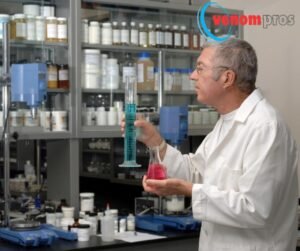
The Role of Emergency Medicine Specialists in Saving Lives
Emergency medicine specialists play a pivotal role in the healthcare system, standing at the frontline during critical moments when immediate medical intervention is essential. These highly skilled professionals are trained to assess, diagnose, and treat patients who are in urgent or life-threatening conditions. Their work extends beyond the walls of the emergency room (ER), with their expertise saving countless lives daily. This article explores the indispensable role of emergency medicine specialists, emphasizing their skills, responsibilities, and contributions to patient care.
1. Defining Emergency Medicine Specialists
Emergency medicine specialists, commonly known as emergency physicians or ER doctors, are medical doctors trained specifically to handle acute, life-threatening conditions. They are trained to stabilize patients, provide rapid and effective care, and make swift decisions under pressure. Emergency medicine encompasses a wide range of medical conditions, from trauma and cardiac arrest to strokes and severe infections.
Unlike specialists who focus on a specific organ system or type of disease, emergency physicians are generalists in a sense, equipped with knowledge in various medical disciplines. Their practice requires proficiency in treating everything from broken bones and lacerations to life-threatening heart attacks and strokes, all within the fast-paced, high-pressure environment of the ER.
2. Rapid Decision-Making and Crisis Management
A hallmark of emergency medicine specialists is their ability to make critical decisions in a matter of seconds. When a patient arrives in the ER with symptoms like chest pain, difficulty breathing, or severe injury, time becomes a precious commodity. ER physicians must assess the situation quickly, interpret clinical signs, and initiate life-saving interventions before definitive diagnoses are often made.
For example, a patient presenting with chest pain could be experiencing anything from a mild anxiety attack to a full-blown heart attack. The emergency medicine specialist must swiftly rule out the most dangerous possibilities and act decisively. Whether it’s administering clot-busting drugs to prevent a heart attack, performing CPR on a patient in cardiac arrest, or stabilizing a traumatic injury, their ability to make accurate and fast decisions often determines whether a patient lives or dies.
3. Versatility in Skillset
One of the core strengths of emergency medicine specialists is their versatility. These physicians are trained to handle a vast array of conditions that vary in complexity and severity. Whether it’s a pediatric case involving a child with a high fever, an elderly patient with a stroke, or a trauma victim involved in a car accident, emergency doctors must be ready for anything that comes through the ER doors.
This requires a deep understanding of multiple medical fields, including cardiology, neurology, pediatrics, toxicology, and trauma care. Emergency physicians are adept at performing life-saving procedures such as intubation, chest tube insertion, suturing, and emergency surgeries like cricothyrotomy. Their ability to manage multiple cases simultaneously, while keeping calm under extreme pressure, is crucial in saving lives.
4. Team Coordination and Leadership
In the chaotic environment of an emergency room, teamwork is essential. Emergency medicine specialists often act as leaders of multidisciplinary teams that include nurses, paramedics, radiologists, and other healthcare professionals. This team-based approach ensures that patients receive comprehensive and efficient care.
Communication is key in this setting. ER doctors must quickly and clearly convey orders, explain diagnoses, and guide team members through complex procedures. Their leadership skills are vital during mass casualty incidents, such as natural disasters, large-scale accidents, or terrorist attacks, where the number of patients can overwhelm available resources. In such situations, emergency physicians must triage patients, determining who needs immediate care and who can wait, while managing limited resources effectively.
Critical Thinking and Adaptability
While textbooks and protocols offer guidelines, many cases that emergency physicians handle don’t fit neatly into standard categories. Each patient is unique, and emergencies often present with ambiguous symptoms or incomplete histories. ER doctors must rely on their clinical intuition, drawing from years of experience and training to make informed decisions. This ability to think critically and adapt to evolving situations is what sets them apart.
For example, an elderly patient may arrive unconscious after a fall. The doctor has limited information to work with, but they must rapidly consider possible causes—whether it’s a stroke, a cardiac event, or a traumatic injury to the brain. While diagnostic tests like CT scans or blood work are essential, emergency medicine specialists often begin treatment before results come back, based on their clinical judgment and experience.
6. Managing Public Health Crises
Beyond individual patient care, emergency medicine specialists play a crucial role in managing public health crises. During pandemics, like the COVID-19 outbreak, emergency rooms are often the first line of defense. Emergency physicians must adapt to treating an influx of patients, managing new and evolving conditions, and working within strained healthcare systems. Their role is not only to treat patients but also to implement and enforce public health measures, including quarantine protocols, infection control, and mass vaccination campaigns.
In times of public health emergencies, ER doctors also contribute to research and the development of treatment protocols for new diseases. Their firsthand experience with patient outcomes helps shape national and global healthcare strategies, ensuring that medical interventions are both effective and safe.
7. The Emotional and Psychological TollThe work of an
emergency medicine specialist is emotionally and psychologically demanding. Every shift involves witnessing trauma, suffering, and sometimes death. These doctors are tasked with delivering life-altering news to families, making split-second decisions that carry immense consequences, and coping with the emotional burden of losing patients despite their best efforts.
The emotional toll of emergency medicine has been a growing area of concern in the medical community. Many emergency physicians experience burnout, anxiety, and even post-traumatic stress disorder (PTSD) due to the intensity and frequency of high-stress situations. Despite these challenges, emergency medicine specialists continue to show extraordinary resilience, driven by the knowledge that their work directly saves lives in Emergency medicine specialists.
Also read this;>Discovering the Venom in Edible Fruits.
Also read this;>“The Puzzle Games Revolution: Best Picks for 2024”






